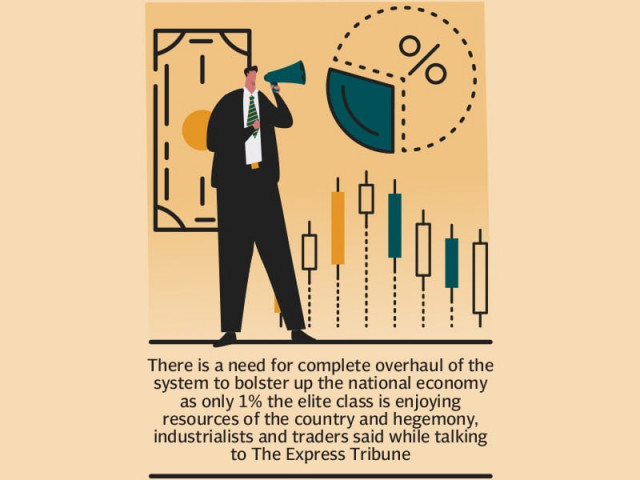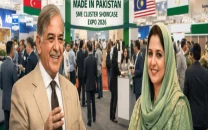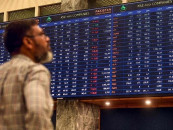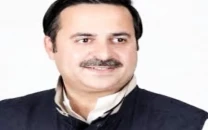'Systemic overhaul needed'
Industrialists accuse govt of making pro-elite policies, ignoring informal sector

Pakistan needs a complete overhaul of its systems to revitalise its economy because right now only 1% of the elite class is enjoying resources of the country and hegemony, industrialists and business leaders said.
Speaking to The Express Tribune on Monday, they stated that the country's prosperity is dependent on scaling up and strengthening businesses and industries, along with promoting the middle class, which they called the nation's backbone rather than the elite class.
The primary reason for this stance is the government's support for elite capture. Over the past few decades, policies have been instituted that are conducive to this elite capture and consequently have been detrimental to mainstream businesses and a large segment of the population. They also stressed the critical need to control smuggling, under-invoicing, and mis-declaration, which they described as "termites eating away the nation's fabric."
The frequent change in policies damage confidence, as most pro-business policies are changed or amended for the worse before they have the chance to yield results. The business leaders argued that laissez-faire principles should guide economic policies and that inspections, audits, and checks must be streamlined to support businesses rather than hinder them. "What will the government lose if such positive steps are taken?" they asked, asserting that only the private sector can drive substantial growth.
Former president of Karachi Chamber of Commerce and Industry (KCCI), Majyd Aziz, stated that although the economic indicators are growing to be more favourable there is a lot to do to achieve real economic stability. First and foremost, the government has to immediately provide a comfort zone to the private sector. This can be done by easing pressure on the formal sector. The new modus operandi of the Federal Board of Revenue (FBR), along with other government organisations, seems to be to focus on the formal sector rather than focusing on the vast informal sector outside the tax net.
Aziz also pointed out a slowdown in various industries, exposing them to the double-edged sword of functioning in Pakistan's formal sector. While he welcomed the recent interest rate reductions, which he believes will encourage industries to secure loans for new machinery and factory construction, he lamented that utility rate hikes continue to raise production costs.
He stressed that the need of the hour is to provide more space for industries, especially those that are export-based, to speed up production and take on more export orders, which would increase foreign receipts and enhance Pakistan's share in global markets.
He added that the Special Investment Facilitation Council (SIFC)'s vision, to concentrate on agriculture, mining, and Information Technology, is a plus point and could encourage domestic as well as foreign investment. It is also proposed that the blue economy be given special consideration given that Pakistan's coastline extends over 1,050 km, which could also increase employment along with revenue.
Muhammad Farooq Shaikhani, former President of the Hyderabad Chamber of Small Traders and Small Industry (HCSTSI), voiced frustration over inconsistent policies, political instability, and a lack of government coordination, which leads to weak policy execution, corruption – giving priority to vested interests that obstruct necessary reforms. He added that limited public input and insufficient engagement of stakeholders lead to policies that do not align with on-ground realities. Shaikhani underscored that addressing these fundamental issues is crucial to creating policies that produce lasting benefits.
Former federal finance minister Miftah Ismail, during a visit to the HCSTSI, stated that reforming Pakistan under the current system is impossible as the elite currently holds firms control of all the country's resources.
He criticised the government for buying liquefied natural gas (LNG) at $7-8 and selling it at $14, all the while failing to end load-shedding. He added that all the institutions in Pakistan are currently embroiled in blame games instead of necessary reforms.
Ismail pointed out that of 486,000 schools, only a few institutions produce individuals who attain positions in Pakistan's bureaucracy or judiciary, essentially allowing a small group to influence all decisions. Tax policies, he said, also reflect an inequitable structure, with salaried individuals taxed at 38.5% and traders and industrialists at 49.5%, an unworkable system in his view.
Finally, Ismail added that while global powers cannot afford for Pakistan to default, reliance on the International Monetary Fund (IMF)'s assistance will not drive development. For growth, systemic change and comprehensive reforms are mandatory, he said.



















COMMENTS
Comments are moderated and generally will be posted if they are on-topic and not abusive.
For more information, please see our Comments FAQ